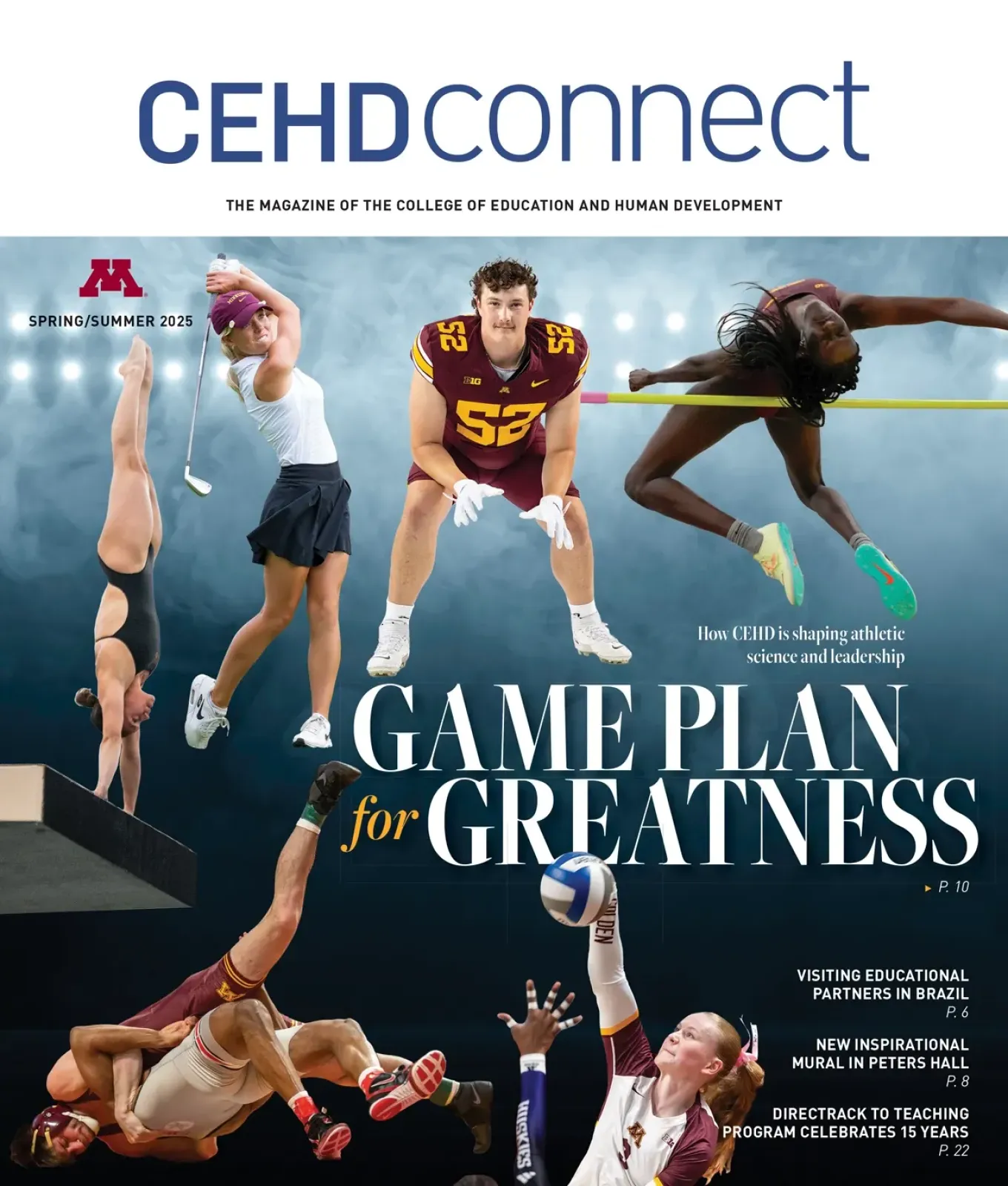Giving to CEHD
YOUR GIFT MATTERSCEHD's leadership in education, human development, and research depends upon the generosity of alumni and friends. When you invest in education, dividends go to everyone.
Your gifts fund scholarships, diversity initiatives, investment in faculty, and other areas that strengthen our academic mission while ensuring collaboration with community practitioners. Your support makes innovation possible while sustaining CEHD’s ongoing work to improve lives.
Our students benefit from a supportive and challenging environment with special opportunities such as research experiences, study abroad and internships. Our faculty are among the best in the world, conducting field-changing research and engaging all students in learning. Our graduates go on to be leaders and in their careers and in their communities – instilled with a commitment to improving lives for children and families.
Gifts of all amounts have an impact, and you can make a difference with your support.
In 2024-25, donors supported these priority areas:
$1.7M
to research
$5.7M
for student support
$280,000
for faculty and staff support
$1M
for programs
Giving to departments and centers
WE BELIEVE THAT EDUCATION PLUS HUMAN DEVELOPMENT EQUALS VIRTUALLY LIMITLESS POSSIBILITY.CEHD departments and programs have priorities specific to their student body and research areas. If you would like to support a unit within CEHD, please visit our directory to find your area of interest or contact the development team.
CEHD Connect: The magazine for the College of Education and Human Development

Spring/Summer 2025 ISSUE
Game plan for greatness: Spring/Summer 2025
- A letter from the Dean: Spring/Summer 2025
- A passion for education
- Art, social work, and the importance of community
- Celebrating ASL and Deaf culture with Visual Vernacular
- Empowering mentors to empower youth
- Expanding horizons
- Exploring the impact of sport
- Game plan for greatness
- Giving matters: Nancy M. and John E. Lindahl Professorship
- Inviting UMN undergrads into educator pathways
- SoK alum Niko Medved named head men’s basketball coach
- Talking with Tasha Bell
- The power of reflection
- This is why I give: Karen Seashore
- This is why I give: Linda Wells